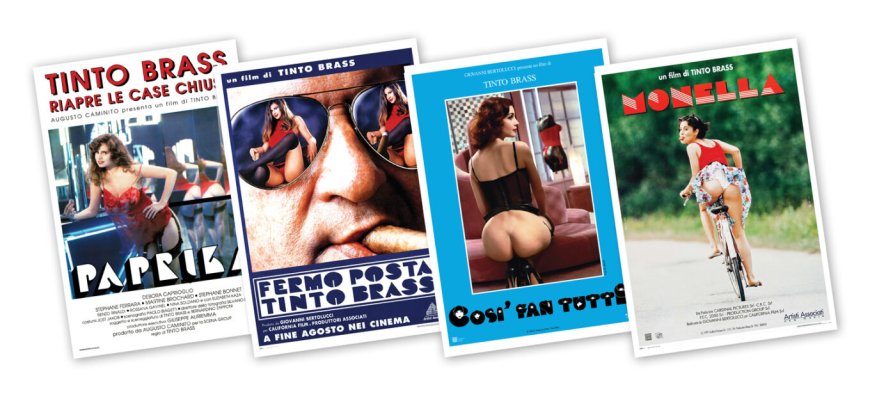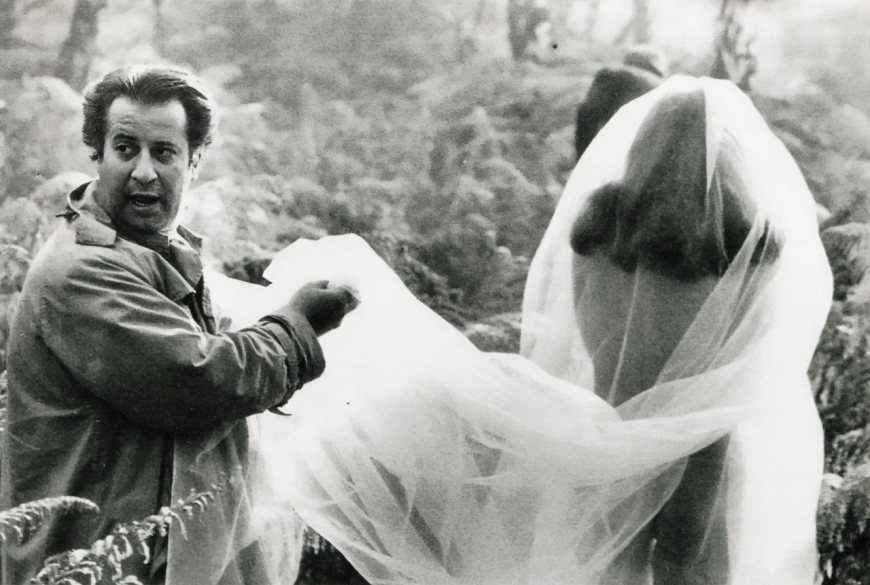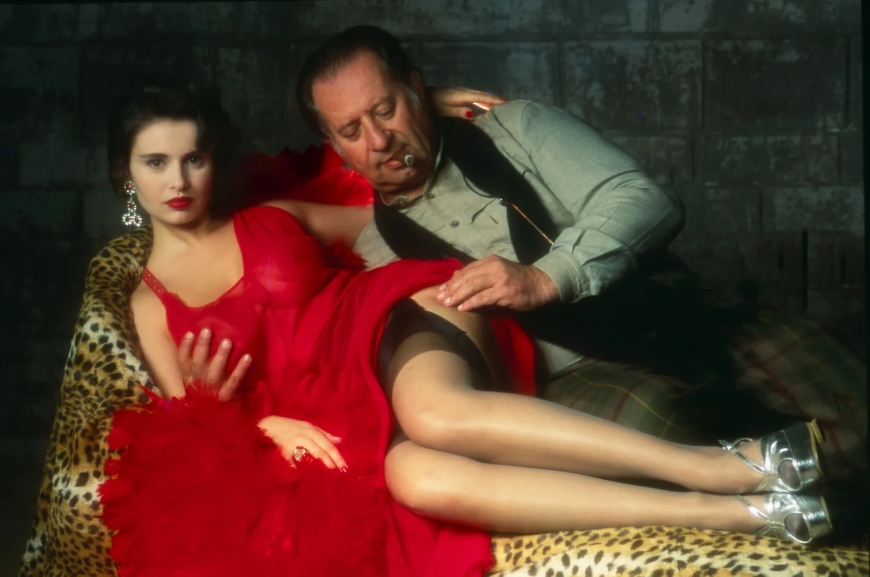Tinto Brass: The King of Erotic Cinema
Discover the life, works, and legacy of Tinto Brass, the legendary Italian filmmaker known for redefining erotic cinema with bold, sensual, and controversial films.

Tinto Brass: The King of Erotic Cinema
Tinto Brass, often hailed as the "King of Erotic Cinema," is one of the most iconic and controversial figures in the world of European film. With a career that spans over six decades, Brass has carved a niche for himself by blending sensuality, artistic freedom, and social commentary in his films. His work has challenged societal norms, redefined the aesthetics of eroticism, and left an indelible mark on both mainstream and adult cinema.

Early Life and Career Beginnings
Giovanni Brass, famously known as Tinto Brass, was born on March 26, 1933, in Milan, Italy. His early exposure to art and literature deeply influenced his creative path. After studying law at the University of Padua, Brass moved to Paris in the 1950s, where he worked at the Cinémathèque Française. This experience introduced him to experimental and avant-garde cinema, particularly the works of directors like Jean-Luc Godard, Luis Buñuel, and Stanley Kubrick.
Brass’s first steps in the world of film were as an assistant director and editor. He directed his debut feature film Who Works Is Lost (Chi lavora è perduto) in 1963, which showcased his early affinity for non-linear storytelling and political satire. However, it wasn't until the 1970s that he found his true voice — eroticism.
The Shift to Erotic Cinema
In the early 1970s, Tinto Brass began to embrace a more sensual and provocative cinematic style. Films like Salon Kitty (1976) and the infamous Caligula (1979) pushed boundaries both visually and thematically. While Salon Kitty used the backdrop of Nazi Germany to explore themes of power and corruption through sexual manipulation, Caligula remains one of the most controversial films ever made due to its graphic content and chaotic production process.
Caligula was originally intended to be a historical epic funded by Penthouse magazine founder Bob Guccione, but creative differences between Brass and Guccione led to significant post-production changes. Despite—or perhaps because of—its notoriety, the film cemented Brass’s reputation as a fearless provocateur.
Signature Style and Themes
Tinto Brass is known for his unique directorial signature. His films are characterized by lush cinematography, bold color palettes, and a distinct visual focus on the female form—especially the buttocks, which he often described as a symbol of sensual power. Brass's women are typically portrayed as confident, dominant, and unapologetically sexual, challenging traditional gender roles in cinema.
His narratives often center around liberation, voyeurism, taboo-breaking, and the complexities of desire. Humor and satire also play a significant role, making his films more than just erotic showcases. They become explorations of human psychology and societal repression.

Notable Films by Tinto Brass
- Salon Kitty (1976): A political-erotic drama set in a Nazi brothel, this film is one of Brass’s early hits and a prime example of eroticism mixed with historical allegory.
- Caligula (1979): A chaotic, lavish, and notorious film about the Roman emperor, starring Malcolm McDowell, Helen Mirren, and Peter O’Toole. The film was heavily edited against Brass's will.
- La Chiave (The Key) (1983): A sensual tale of secret desires between a married couple in 1940s Venice, often cited as Brass’s most balanced and beautiful erotic film.
- Così fan tutte (All Ladies Do It) (1992): Inspired by Mozart’s opera, this film portrays a modern woman exploring her sexual freedom in humorous and touching ways.
- Monella (Frivolous Lola) (1998): A coming-of-age erotic comedy that combines nostalgia with sexual awakening in a 1950s Italian village setting.
Controversies and Censorship
Throughout his career, Tinto Brass has faced significant backlash from critics, censors, and conservative groups. Many of his films were heavily edited or banned in various countries due to explicit sexual content. Nevertheless, Brass defended his work as art that celebrates life, pleasure, and the beauty of the human body. He repeatedly emphasized that his goal was not to shock but to explore the aesthetics of desire without shame or guilt.
Legacy and Influence
Tinto Brass's influence on erotic cinema is undeniable. He brought a sense of style, storytelling, and sophistication to a genre often dismissed as exploitative. His films inspired a new wave of European erotic filmmakers in the 1980s and 1990s. More importantly, Brass’s unapologetic focus on female sexual agency paved the way for more nuanced and liberated depictions of women in cinema.
Even in his later years, Brass remained active and passionate about filmmaking. His late works, including short films and anthologies, continued to explore eroticism with a sense of humor and artistic freedom. Brass also maintained a loyal cult following, and retrospectives of his films have been held in major cities around the world.

Conclusion
Tinto Brass is more than just a filmmaker—he is a cultural icon who revolutionized the way sexuality is portrayed on screen. By blending artistic flair with unabashed sensuality, he redefined the erotic genre and pushed boundaries that few dared to cross. His work remains a testament to the power of cinema to challenge, seduce, and liberate. For fans of film, art, and sexuality, Tinto Brass is not just the king of erotic cinema—he is a legend.











